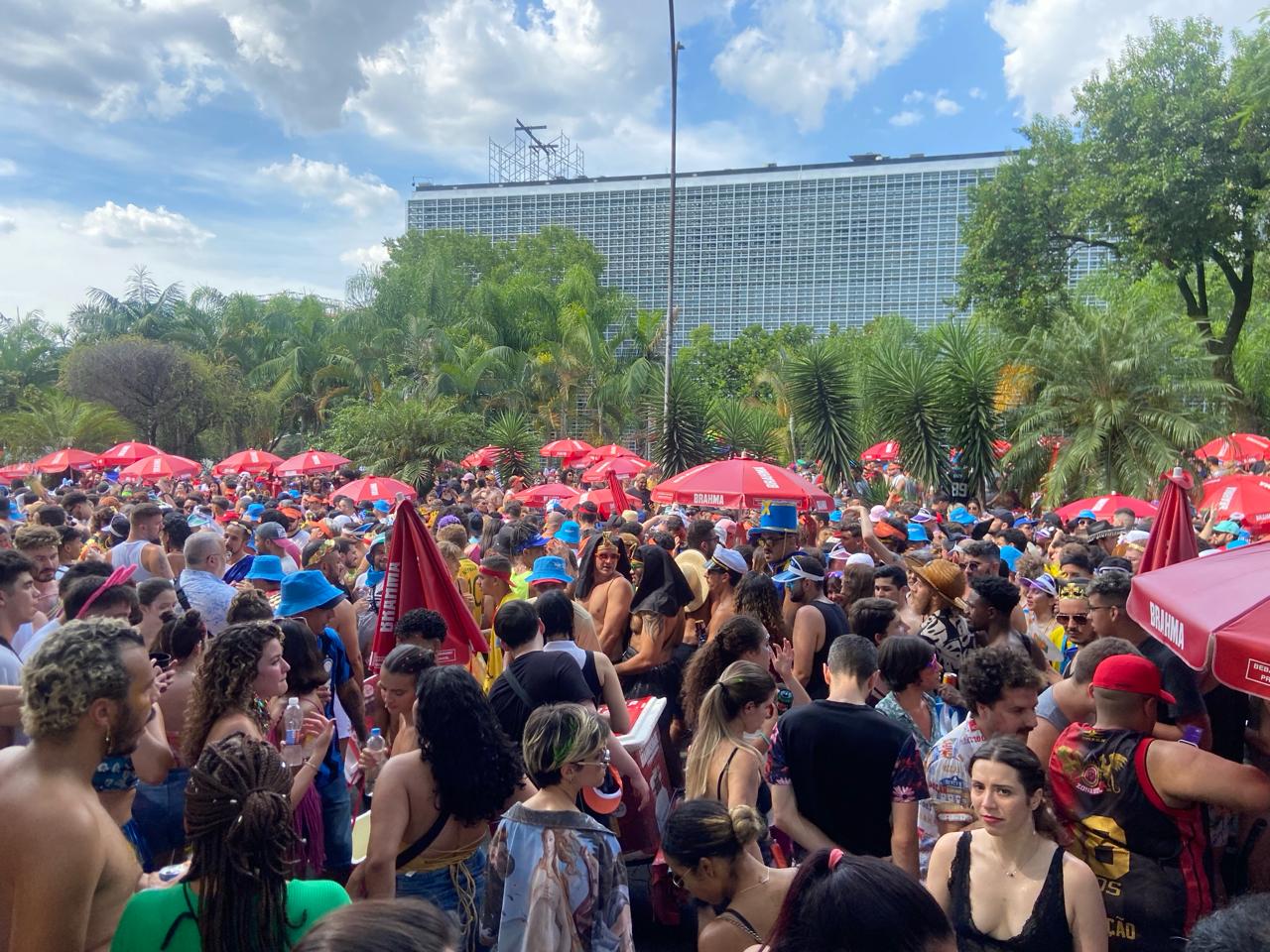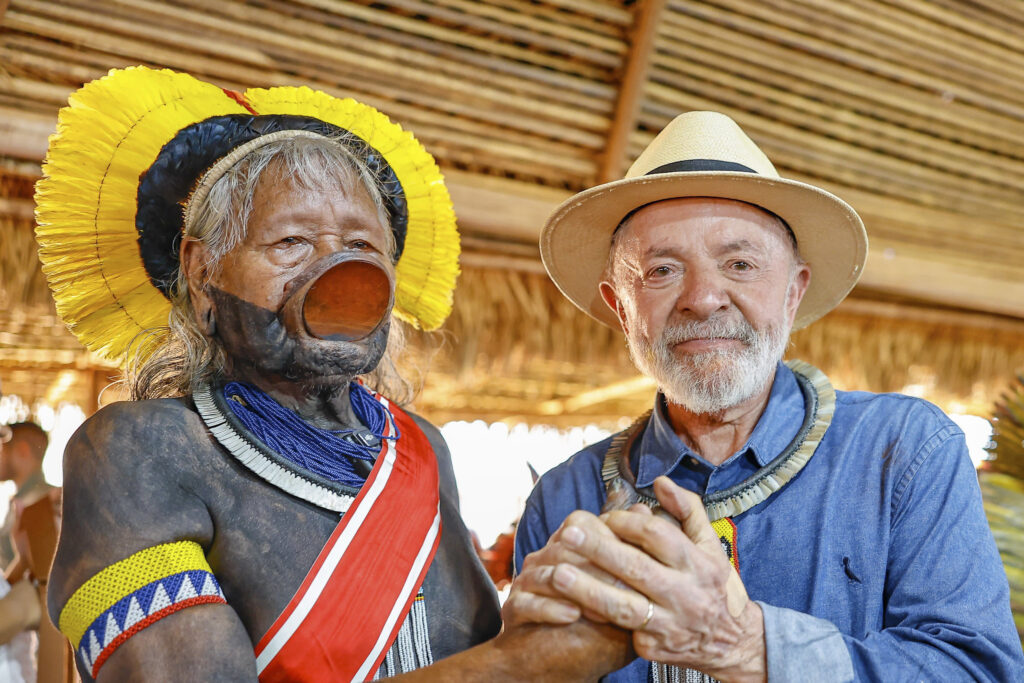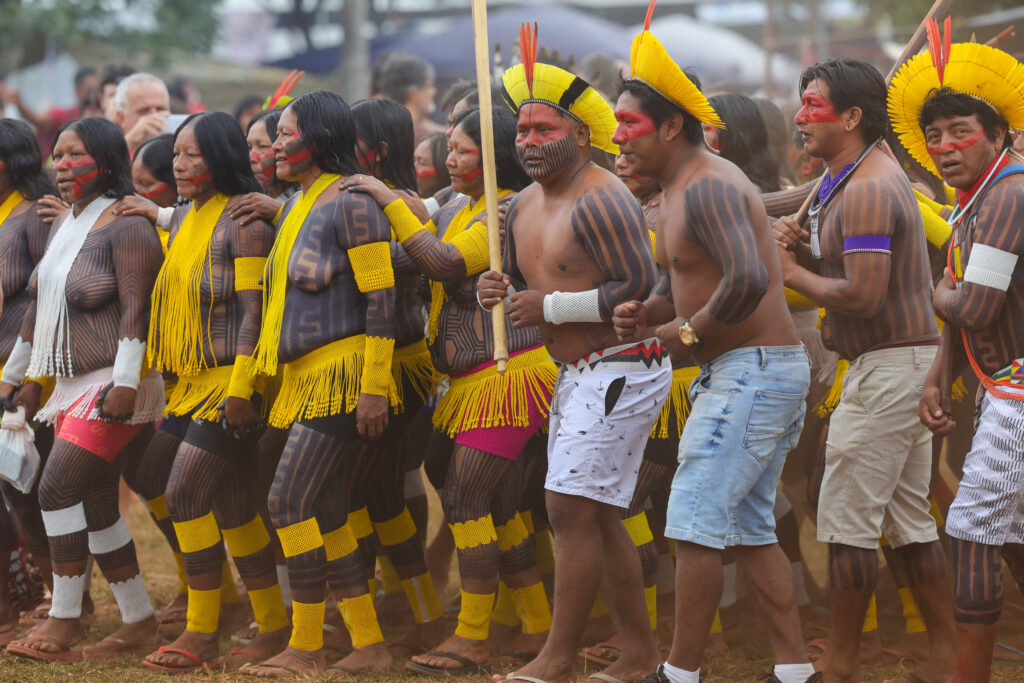São Paulo, Brazil – Brazil’s Carnival is more than just a party. It’s a celebration that fills streets across the country with vibrant colors, bouncing rhythms, and smiling people of all races, ages and genders. It’s truly a manifestation of the joy and diversity of Brazil’s people; and 2024 was no different.
For the past week, millions of Brazilians and tourists from around the globe took to the streets to dance to the sounds of samba, pagode, axé, funk and other regional music. On every corner, hearts beat in time with the drums, while streamers and confetti danced in the air, painting the scene a vibrant palette of color and sparkly glitter.
“Carnival is a manifestation of freedom, where we leave everyday worries behind,” said salesman Bruno de Souza while dancing on a street block in São Paulo, the country’s largest city.
“At Carnival, there is no judgment. Nobody cares about other people’s clothes or hair. Everyone just wants to be happy,” said Bruno’s friend, Laura Muniz.
Brazil’s Carnival is also known for its welcoming spaces for the LGBTQIA+ community. On Saturday, famous drag queen and singer Glória Groove took her famous party (or as they’re called during Carnival, “blocos” or “blocks”) to São Paulo for the first time. Over one million people visited Glória’s block which was draped in rainbow colors.
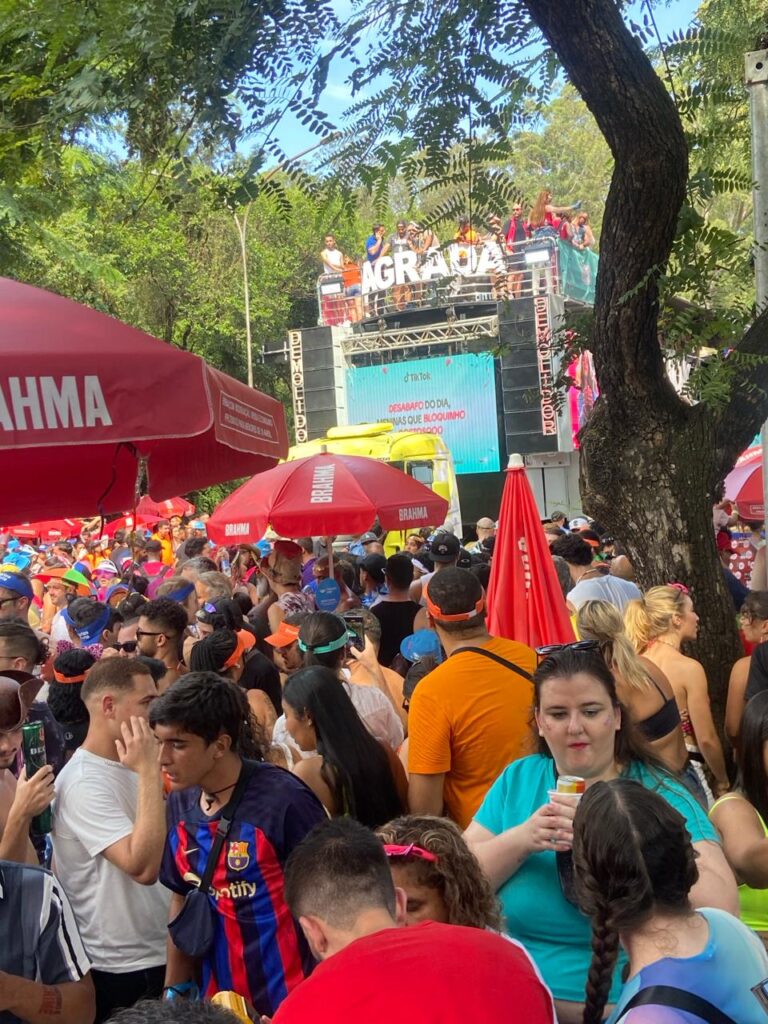

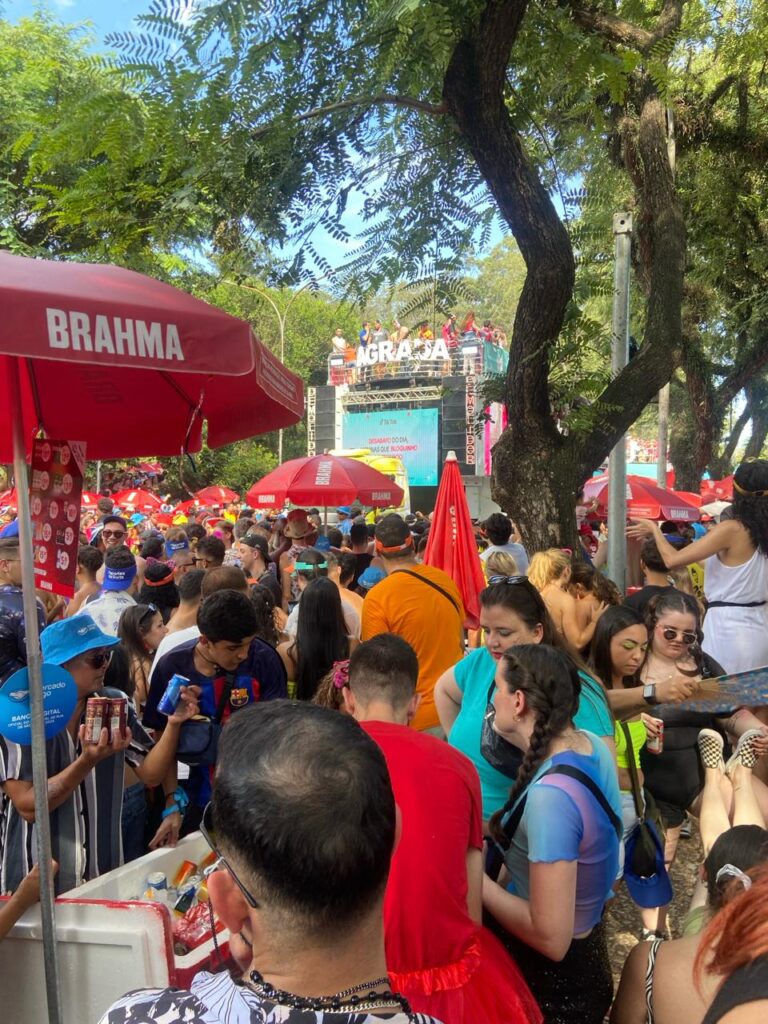
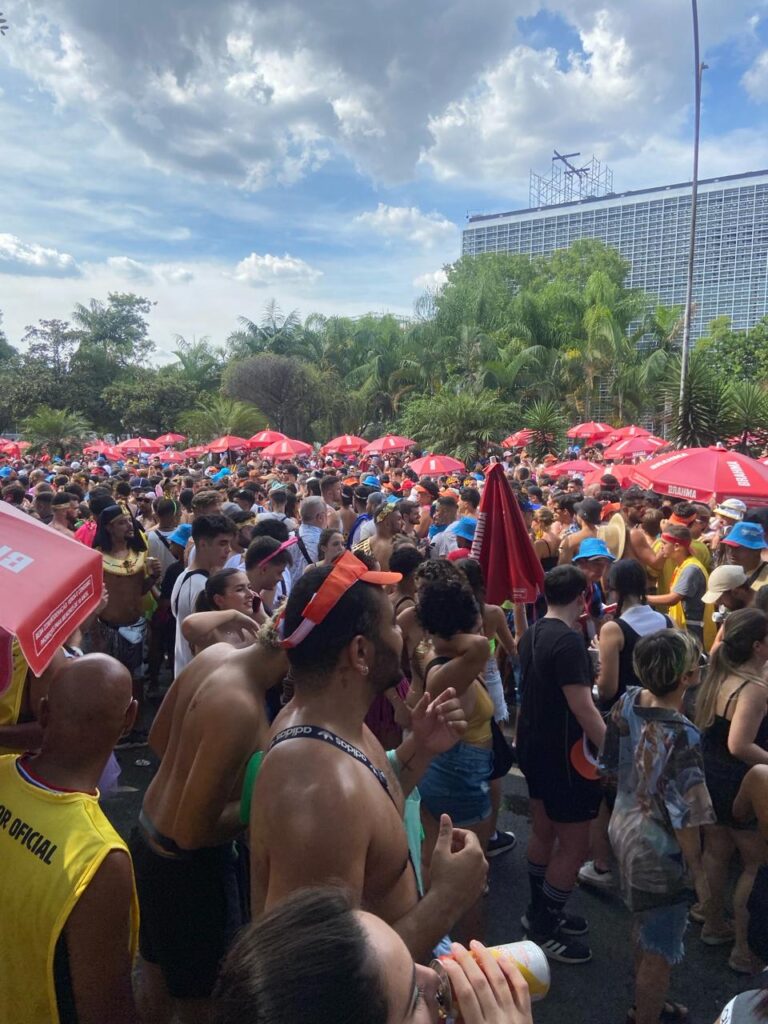
Psychologist João Vinícius Assis told Brazil Reports that the best part of street Carnival is being able to express his sexual orientation without fear of suffering prejudice.
“I can walk hand in hand with my boyfriend without being judged for it. Carnival is an invitation to express yourself, to be authentic, to dance and be happy,” he said.
Problems at the party
Of course, not all is rosy when you’re hosting one of the largest street parties in the world.
Security was an issue during Carnival. Pickpocketing and other thefts as well as fights were sporadic during the celebrations. In São Paulo, for example, the police registered at least 300 reports of cell phone theft between the 10th and 13th of February.
On Saturday, the police managed to recover 55 cell phones stolen from a block in São Paulo. A woman was arrested with 22 stolen cell phones hidden in her clothes.
On Tuesday, a block in São Paulo was shut down due to excessive fighting as well as cell phone thefts. Funk singer Pocah interrupted her show more than once to ask people to stop fighting, but decided to prematurely end the concert instead.
The heat, too, made things difficult for Carnival-goers. In São Paulo, hundreds of people fell ill at a large block on Sunday. Singer Pablo Vittar’s show ended an hour early due to excessive heat and overcrowding. Police estimated that there were over 1 million people attending the block.
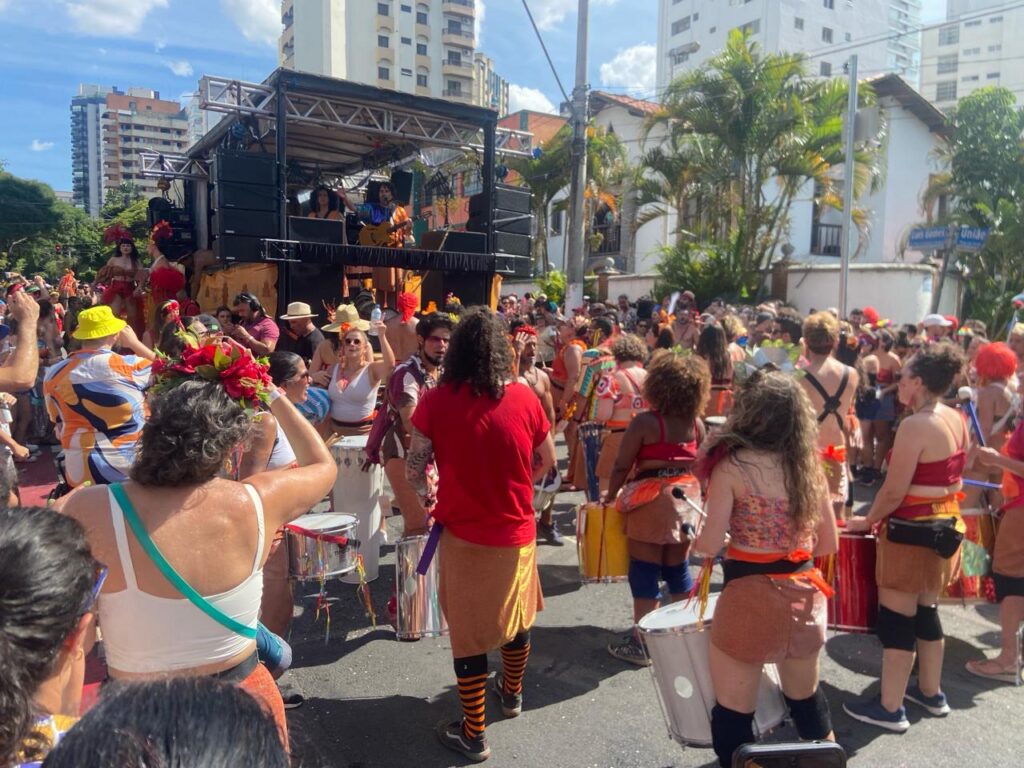
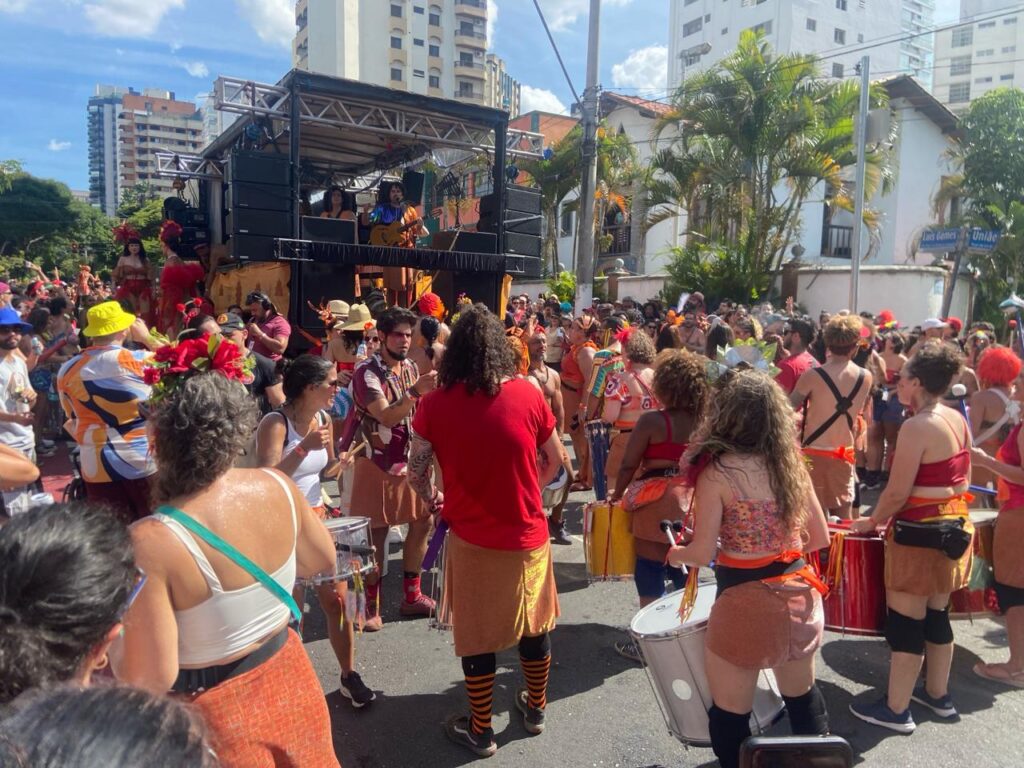
In Rio de Janeiro on Tuesday, funk singer Ludmilla also ended her show early after many people fell ill due to the heat. “It’s for your safety,” she told the crowd.
The city is also facing a health emergency due to an outbreak of dengue, a mosquito-borne virus. Carnival-goers in Rio de Janeiro were encouraged to take extra precautions like using insect repellent to avoid getting bit by mosquitoes.
In Salvador, home to one of the most traditional Carnival celebrations in the country, a widespread energy blackout on Saturday delayed concerts and angered festival goers.
According to authorities, the blackout was caused by the release of coils into the electrical system. The blackout affected traditional parades and caused traffic jams, and a concert by iconic Brazilian Samba and Latin Pop singer Ivete Sangalo was delayed for three hours.
Facing the challenges
Despite the difficulties, you’d be hard pressed to find anyone who regrets leaving home to celebrate Carnival this year. “We know that Carnival is crowded and, if you decide to go to a street block, you have to be prepared for these situations,” said Carla Trindade, a nurse in São Paulo.
“You have to be careful with your cell phone so it doesn’t get stolen. You have to drink a lot of water because it’s summer and it’s very hot. You have to face the pushing and shoving. Carnival is like that,” she laughed.


